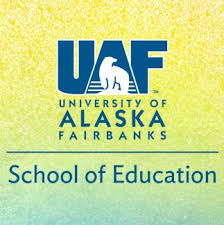School of Education joins national network
October 29, 2020
 The UAF School of Education is one of five university-based educator-preparation programs
to recently join the Learning by Scientific Design network, a national effort to transform
the way future teachers are prepared.
The UAF School of Education is one of five university-based educator-preparation programs
to recently join the Learning by Scientific Design network, a national effort to transform
the way future teachers are prepared.
The network, LbSD, is a program under Deans for Impact, a national nonprofit organization that works to ensure well-prepared teachers are in every classroom. UAF is part of a cohort that includes the education programs at Boston University, National Louis University', Sam Houston State University and Texas Christian University.
With this expansion, the LbSD network has grown to include 11 programs that collectively prepare nearly 7,000 future teachers, of which approximately 29% are future teachers of color.
Participating programs are redesigning how they prepare future teachers through the lens of learning science. Using data from a unique formative assessment developed by Deans for Impact, programs identify gaps in teacher-candidate understanding of learning science, develop action plans to address those gaps, implement changes to coursework and clinical experiences, and collect evidence to monitor improvements.
Future teachers emerge with a deep understanding of learning-science principles and an ability to design rich instructional experiences for students.
“We believe that all teachers should begin their careers with a firm understanding of the science of how students learn,” said Benjamin Riley, founder and executive director of Deans for Impact. “At a moment of tremendous challenges for our education system, the Learning by Scientific Design network is helping programs maintain their focus on fostering excellent teaching that improves student learning.” Support for the newest network participants comes from the Bezos Family Foundation.
Founded in 2015, Deans for Impact is a national nonprofit organization dedicated to ensuring that every child is taught by a well-prepared teacher. We do this by connecting with leaders of educator preparation programs; helping them transform their programs; sustaining these transformations over time; and influencing policy that affects their work. In designing learning experiences, we aim to create inclusive and collaborative spaces that address participants’ real problems of practice, and provide concrete examples while recognizing the importance of local context.
For more information about the UAF School of Education's participation in LbSD, contact Douglas Cost at 474-1556 or dscost@alaska.edu.


